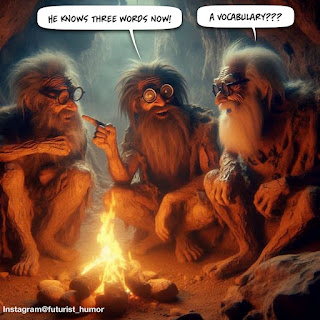The HR acronym means Human Resources, but how does that change when digital agents and robotic coworkers are added? How will it change the future of HR, work and jobs? This and many more topics are discussed with expert Celia Fleischaker in this insightful interview.
*I use generative AI to assist in all my work.
************************************************************************
Kevin Benedict
Futurist at TCS
View my profile on LinkedIn
Follow me on Twitter @krbenedict
Join the Linkedin Group Digital Intelligence
***Full Disclosure: These are my personal opinions. No company is silly enough to claim them. I work with and have worked with many of the companies mentioned in my articles.







